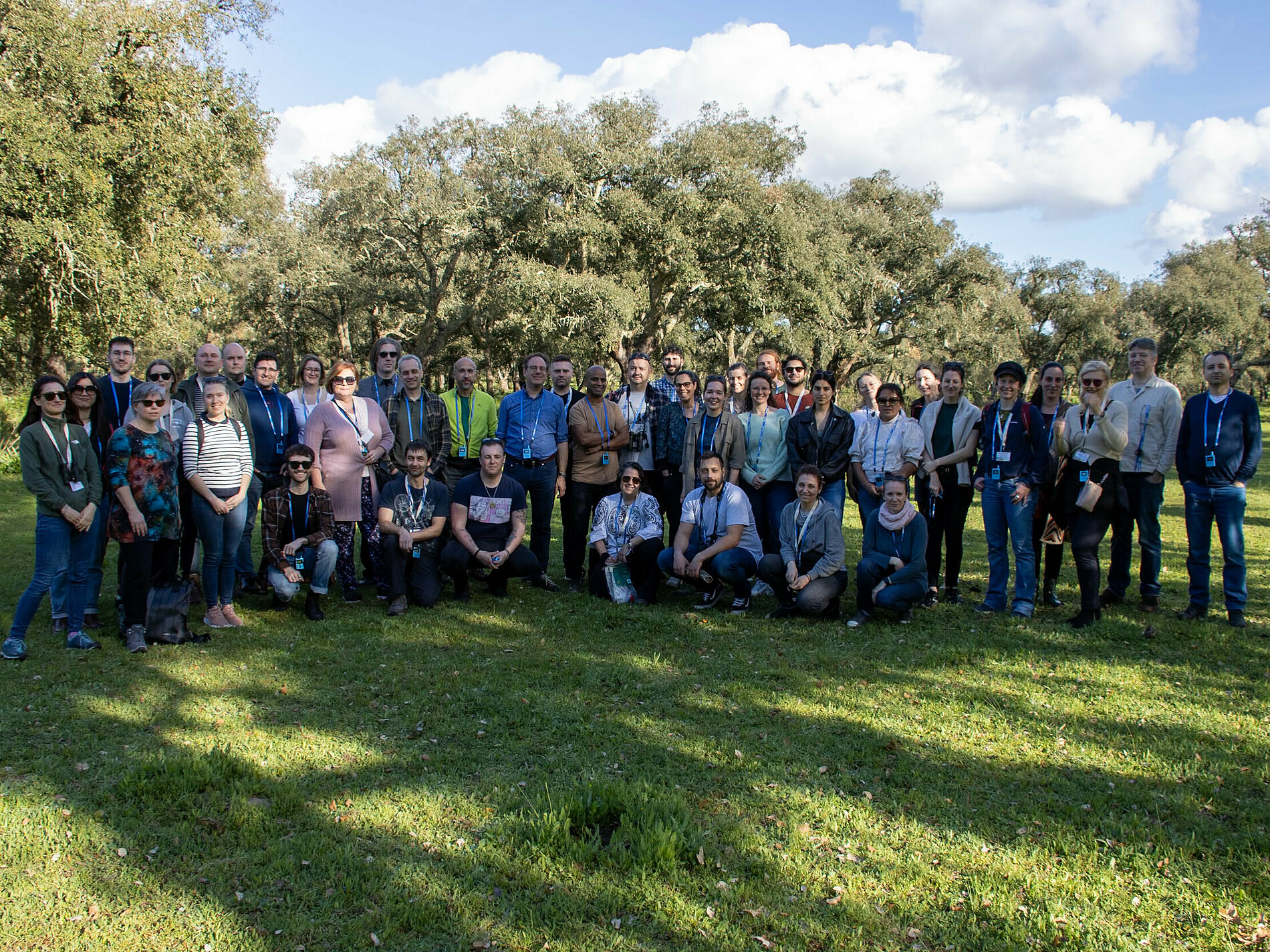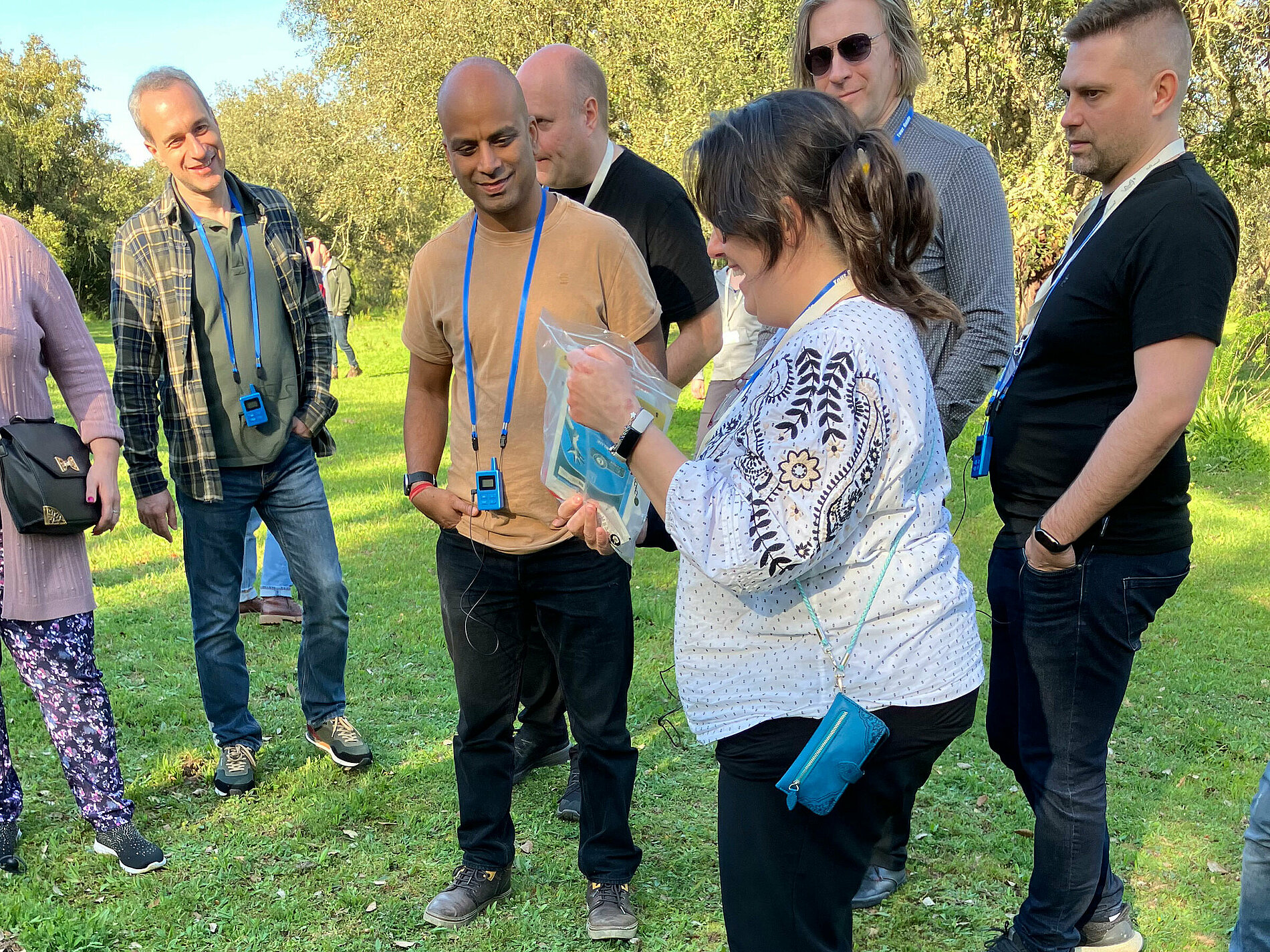BioMonitor4CAP partners gather for first Consortium meeting in Lisbon
In mid-March, the first annual meeting of the European research project BioMonitor4CAP took place in Lisbon. The three-day meeting was hosted by Food4Sustainability CoLAB, the Portuguese project partner.
The aim of BioMonitor4CAP is to develop advanced biodiversity monitoring systems for results-based agricultural policy and agricultural transformation. To achieve this, classical biodiversity indicator systems are combined with new technological approaches, including acoustic, optical, and molecular systems. The current discussions and decisions in the European Union's Common Agricultural Policy (CAP) regarding environmental requirements underscore the importance of the project and its contribution to a more sustainable agriculture.
The annual meeting marks a significant milestone for the BioMonitor4CAP project: the first project year passed by, initial data has been collected, and the second biodiversity monitoring season is about to begin. The meeting provided a valuable opportunity to summarise the results achieved in the last year, discuss upcoming challenges, and strategize activities in the years to come.
”I was excited to finally see everyone again at our Annual Meeting in Lisbon. It was a great time out at Companhia das Lezírias farm, looking at soil eDNA sampling and discussing biodiversity monitoring devices for future EU CAP. The project is well on track and I am looking forward to the coming sampling season”, summarized Professor Dr Christoph Scherber, head of the Centre for Biodiversity Monitoring and Conservation Science at the Leibniz Institute for the Analysis of Biodiversity Change (LIB) and coordinator of BioMonitor4CAP project, at the end of the meeting.
During the meeting the final preparations and coordination for biodiversity monitoring on the BioMonitor4CAP study sites in Portugal, Finland, Bulgaria, Austria, Germany, the Netherlands, the United Kingdom, Poland, and Peru were made. Compared to 2023, this year a significantly larger number of research site will be sampled, with additional monitoring systems deployed to collect extensive data on bird and insect diversity, as well as soil microbiomes. These data will be incorporated into the BioMonitor4CAP web GIS platform, where spatial information on habitats, species, and soil carbon on the study sites will be accessible in the future. A big milestone was achieved last autumn, when the geo-database went online. However, due to ongoing improvements, it is not yet publicly accessible.
To ensure that the monitoring systems developed during the project are indeed practical for agricultural application, farmers and agricultural advisors have been involved from the beginning. In so-called focus group interviews, these stakeholders are interviewed about biodiversity in agriculture and the use of new biodiversity monitoring technologies. A first round of interviews in Finland showed a general interest from agriculture in biodiversity monitoring measures. However, an important contribution of the BioMonitor4CAP project to a more sustainable agriculture will be to convince farmers of the benefits of biodiversity monitoring and thus the implementation of measures.
Throughout the meeting, project partners intensively discussed the development of new biodiversity indicators for implementation in policies. After a comprehensive list of biodiversity indicators for soils, insects, birds, and remote sensing data was compiled through systematic literature review in the first year of the project, the next step is to identify indicators that can be measured with the biodiversity monitoring systems tested in the project while also being applicable and meaningful for agricultural practices.
In addition to the technical discussions, the meeting was also an opportunity for consortium members to strengthen the team and facilitate dialogue. “The most important thing, of course, was to meet all the people you have spent countless online meetings with and get to know them better.”, said Ilja Svetnik, Junior Science Researcher at Carinthia University of Applied Sciences / Fachhochschule Kärnten in Austria.
The first annual meeting was a great success for the BioMonitor4CAP project, both to look back and recognize what progress and milestones have been achieved and which challenges occurred. But also to look ahead and plan the project years to come.
Want to know more about BioMonitor4CAP and stay up to date?
Visit the project website and subscribe for the project newsletter.



